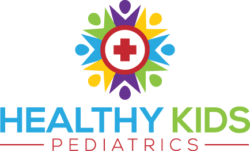 If there were ever a year that we needed to be aware of mental health challenges such as sadness, anxiety, and depression 2020 would be the winner.
If there were ever a year that we needed to be aware of mental health challenges such as sadness, anxiety, and depression 2020 would be the winner.
As if it is not hard enough dealing with quarantining, virtual learning, and staying away from family members, the winter weather makes getting outdoors, enjoying the warm sunshine, and moving our bodies even more difficult.
At our office we use a health screening questionnaire program that helps identify patients who may be facing mental health issues. Without question, thoughts of sadness, depression, worry, and anxiety were clearly the most prevalent areas of concern when we reviewed our patients’ responses. Everyone has sad and nervous thoughts and it is very common, but when those thoughts start to interfere with our lives that’s when it becomes an issue. It’s important that we speak up and express our feelings.
There are many factors that play a role in why we think the way we do and if we keep holding these feelings inside it can make matters much worse. So it is important that we share our thoughts with others and not to be ashamed of the way we are feeling. It is also important to be mindful of others who may be suffering in silence so look to give someone a shoulder to lean on if you suspect that they are experiencing mental health issues. Sometimes even more important is to be able to recognize that we, ourselves, may need a shoulder to lean on from time to time.
Anxiety and depression are more common than people may think. When we address mental health issues with families we find that many individuals and families who suffer think they are the only ones, but we remind them that they are not alone and there is help. Sometimes professional help is very hard to find. There are many resources out there, but insurance can be an issue when trying to find a therapist or psychiatrist who is covered in a family’s insurance plan. Pediatric practices are happy to work as a team with families to conquer their fears and nerves.
Things you can do that are not expensive and do not require a referral can be as simple as optimizing our sleep (because sleep is so important for preventing anxiety and depressive thoughts), our nutrition (getting rid of sugars and keeping on point with healthy eating), and exercise/intentional movement every day (taking a walk, getting fresh air, getting in touch with nature). These elements are all so important in combating feelings of sadness, depression, and anxiety.
As a parent, it is critical to recognize that your own feelings of anxiety and/or depression can have a direct effect on your children. Making time for yourself and practicing self-care on a daily basis has a far greater impact that many people realize. Even just one act of self care lasting no more than ten minutes per day can have an exponentially positive effect on yourself and your family. The following links are great places to start when looking for help for your family.
1) The Center for Disease Control has a page specifically geared to help children cope with mental health challenges.
2) The Anxiety and Depression Association of America has videos and blog posts that focus on managing anxiety around quarantine and social isolation, as well as how to talk to children and teens about the current coronavirus pandemic.
Wishing you a healthy, joyful, and prosperous 2021!
-Dr. Jill
